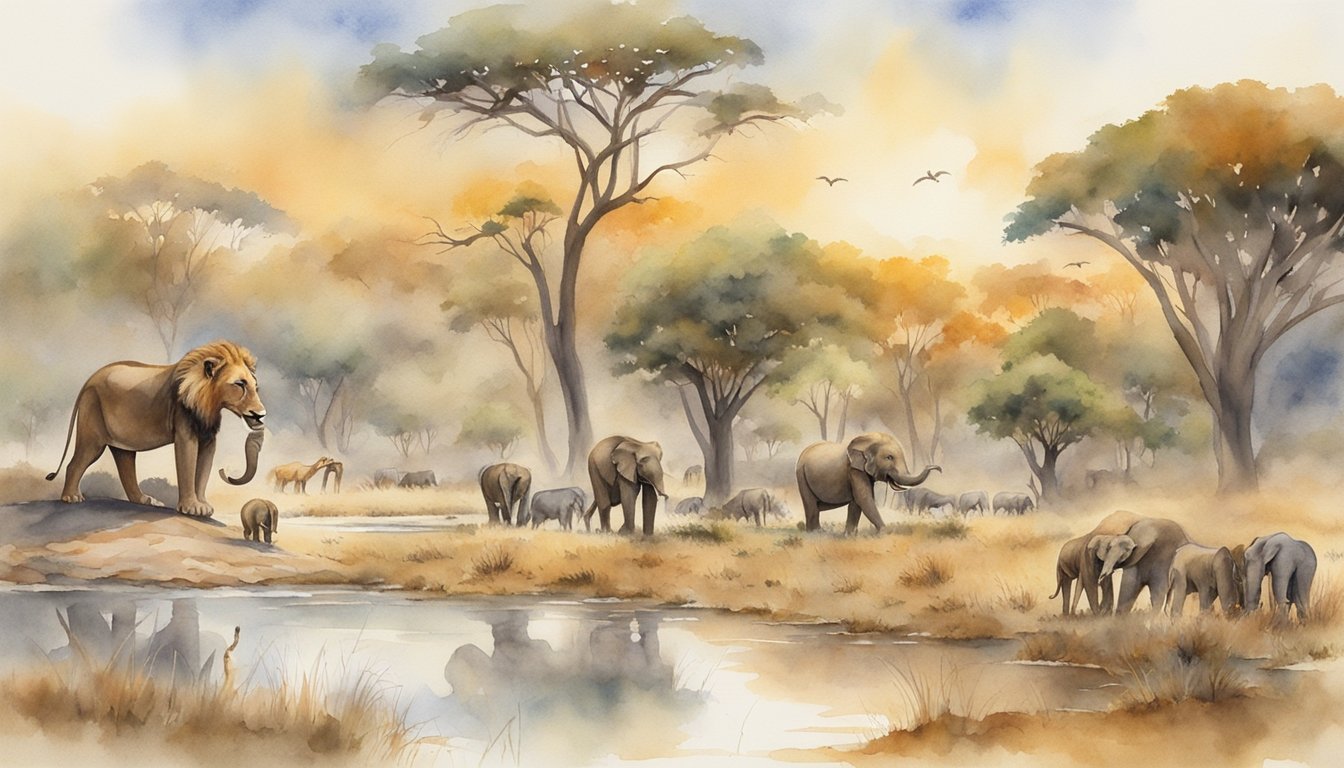Planning Your Kruger National Park Safari
Embarking on a Kruger National Park safari promises an unforgettable adventure through one of Africa’s most renowned wildlife reserves. This section provides tailored guidance to ensure a seamless experience, from selecting the optimal season for game viewing to navigating the vast expanse of Kruger Park.
Best Time to Visit
The optimal time for a Kruger National Park safari is during the dry winter months from May to September. During this period, wildlife congregates around waterholes, making game viewing more predictable, and the sparse vegetation enhances visibility. However, for bird watchers, the wet summer months bring a proliferation of migratory birds, adding a colorful dimension to the safari experience.
Choosing Your Safari Package
Kruger National Park offers a variety of safari packages tailored to diverse preferences and budgets. Visitors can opt for self-drive adventures, which allow for personal itinerary control, or guided safari excursions for expert wildlife insights. Luxury lodges and SATSA accredited tour operators like Kurt Safari offer all-inclusive experiences with a higher level of comfort and exclusivity.
Accommodation Options
Accommodation in Kruger National Park ranges from rustic rondavels and rest camps to luxury lodges and safari hotels. For a unique experience, visitors can stay at the environmentally attuned Umbhaba Eco Lodge near Hazyview or opt for the central location of Satara’s rest camp, known for frequent lion sightings.
Getting There and Around
Kruger National Park is accessible via flights to nearby airports such as Nelspruit’s Kruger Mpumalanga International Airport or direct flights to Skukuza Airport from Johannesburg. Entry gates like Malelane, Orpen, and Phalaborwa are well-positioned for those driving from Johannesburg. Within the park, visitors can traverse the expansive network of roads either by self-driving or on shared or private safaris, ensuring that all pockets of Kruger’s wildlife-rich terrain are within reach.
Wildlife and Conservation

Kruger National Park offers visitors a spectacular opportunity to see some of Africa’s most iconic wildlife up close, while also participating in conservational efforts that protect these species.
The Big Five and Other Animals
Kruger National Park is renowned for hosting the Big Five – lion, leopard, rhinoceros (both black and white species), elephant, and buffalo. These animals are a primary draw for tourists and are vital to the park’s ecosystem. In addition to the Big Five, the park is home to a diverse range of wildlife, including wildebeests, giraffes, and predators such as cheetahs and hyenas.
Bird Watching in Kruger
The park is also a paradise for bird enthusiasts, with over 500 bird species to be observed. The wet season blooms with birdlife, and many migratory birds can be seen during this period. From the Fish Eagle’s iconic call to the vibrant plumage of the Lilac-breasted Roller, bird watching in Kruger can be exceptionally rewarding.
Conservation Efforts
Dedicated conservation efforts in Kruger National Park aim to protect its wildlife populations. Anti-poaching units operate to safeguard species like the rhino, and conservation management ensures balanced ecosystems for all animal inhabitants. Research initiatives also play a critical role in informing conservation policies and practices in the park.
Guided Tours and Activities
For those interested in immersive wildlife experiences, Kruger offers guided tours that range from day safaris to night drives. These activities allow visitors to witness animals in their natural habits, engage in photographic safaris, and ensure safe wildlife sightings. Skilled guides provide insights into the complexity of the bush and its many inhabitants. For a more tailored experience, full-day safaris offer extensive exploration of the park’s diverse regions.

